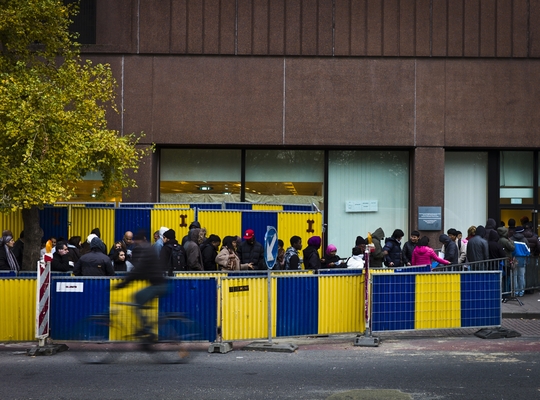You are here
Caretaker government spends more money on asylum reception facilities and cuts budget for repatriation policy

The caretaker federal government spent much more money on asylum reception facilities in 2019 than initially planned. On top of this, the budget for 2020 is also much higher than expected. At the same time, resources for the return of illegal aliens are decreasing. “We must return to a firmer asylum and migration policy with quotas, strong dissuasion and increased return,” says the N-VA.
Skyrocketing costs for asylum reception facilities
Maggie De Block’s lax migration policy is causing the costs associated with asylum reception facilities to skyrocket. In 2019, the caretaker federal government earmarked a total of €410 million for asylum reception facilities. That is an impressive €148 million more than initially planned. We also see a substantial increase in the budget for next year. “The cost of asylum reception from January to March should be €65 million. However, the government now wants to provide an additional €86 million. In other words, just in the first three months of 2020 alone, the government is setting aside €152 million for asylum reception facilities,” says the N-VA.
Less money for illegal alien return policy
Equally remarkable is the decrease in the budget for the return of illegal aliens. The federal government would normally set aside €2.5 million for the first months of 2020, but this is now suddenly only €1.6 million.
A need for a firmer asylum policy with quotas, deterrence and increased returns
The approach the government is taking is completely wrong. It should continue with Theo Francken’s policy focusing on increasing returns and reducing the influx of asylum seekers through quotas and strong dissuasion. In reality, it seems to be doing just the opposite.
The caretaker government must not impose its will
There hasn’t been a fully-fledged federal government for almost a year, and so also not a fully-fledged budget. Specifically, until a new government is formed, a provisional twelfths budget is used. The caretaker government does not have a majority in parliament and must thus not impose its will. Yet time and again, it surreptitiously tries to do so. Asylum policy and migration policy are examples of this situation, and it has to stop.

